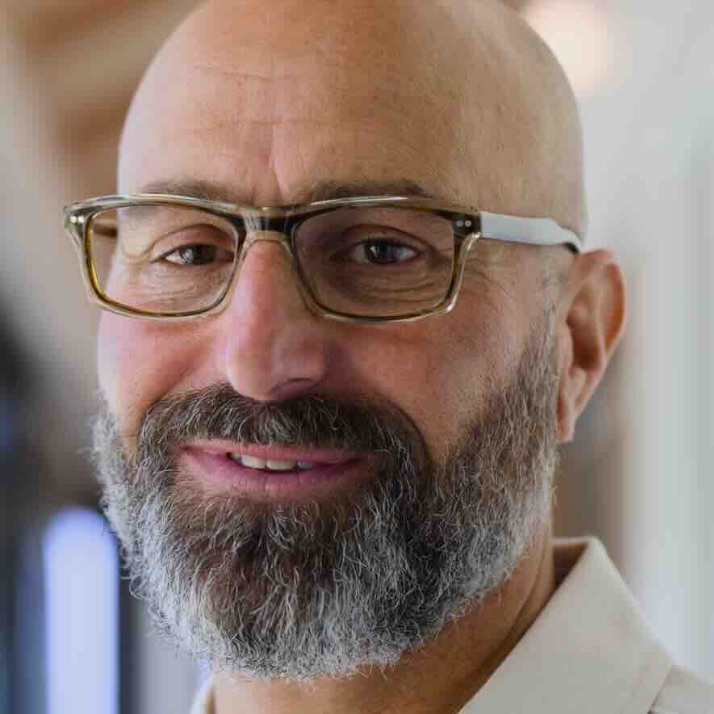Understanding the Basics of Trauma
Trauma is a strong emotional and physical reaction to events that feel overwhelming, frightening, or deeply upsetting. It can stem from experiences like accidents, violence, sudden loss, natural disasters, or ongoing stress, and it affects each person differently. Trauma isn’t a sign of weakness—it’s a human response to something that exceeded your ability to cope in the moment. Healing is possible, and understanding what trauma is can be the first step.
Common signs include intrusive memories or nightmares, trouble sleeping, feeling on edge, numbness, irritability, or avoiding reminders of what happened. You might also notice headaches, stomachaches, or fatigue, since the body carries stress, too. Awareness matters because recognizing these patterns helps you seek support sooner, communicate your needs, and feel less alone. If you live in Louisville, knowing what trauma looks like can help you find local resources, lean on community, and take practical steps toward feeling safer and more in control.
Who Can Experience Trauma
Trauma can affect anyone, regardless of age, gender, culture, or background. While it’s universal, some groups—such as survivors of violence or abuse, first responders, veterans, refugees, and people facing discrimination or chronic stress—may experience it more often. Experiencing trauma is a common human response, not a personal failing. You’re not alone, and support is available for everyone.
Signs You Might Notice
It’s normal to feel off after a difficult or scary experience, and you’re not alone—many people in Louisville notice these changes and recover with support. Paying attention to early signs can help you take care of yourself sooner. If any of these feel familiar, reaching out is a strong first step.
- Trouble sleeping or frequent nightmares
- Feeling on edge, jumpy, or easily startled
- Unwanted memories or flashbacks of the event
- Avoiding places, people, or activities that are reminders
- Mood changes like irritability, sadness, or numbness
- Difficulty concentrating or feeling “foggy”
- Physical tension, headaches, or an upset stomach without a clear cause
Factors That Contribute to Trauma
Trauma can affect anyone. It often results from a mix of factors working together, not from personal weakness. Understanding these influences can help you make sense of what you’re feeling and take steps toward support and healing.
- Biological causes:
- Family history of trauma responses, anxiety, or depression
- A highly sensitive nervous system or differences in brain chemistry
- Chronic illness, pain, or hormonal changes
- Psychological causes:
- Previous stressful or painful experiences that were overwhelming or unresolved
- Limited coping tools or ongoing high stress without time to recover
- Harsh self-criticism or beliefs shaped by past harm
- Environmental causes:
- Exposure to violence, disasters, or accidents
- Discrimination, bullying, or ongoing instability at home, work, or school
- Poverty, housing insecurity, or lack of reliable social support
The Impact of Trauma on Daily Living
Trauma can touch every part of life, sometimes in ways that are hard to name. If you’re in Louisville and noticing daily tasks feel heavier than they used to, you’re not alone—support is available, and healing is possible.
- Work and school: Trouble focusing, remembering tasks, meeting deadlines, or managing stress during shifts or classes.
- Relationships: Feeling distant, on edge, or overwhelmed with friends, family, or partners; difficulty trusting or communicating.
- Physical health: Headaches, stomach issues, fatigue, or chronic pain that make errands, appointments, or caregiving harder.
- Emotional well-being: Anxiety, sadness, irritability, numbness, or mood swings that affect motivation and daily routines.
- Sleep and safety: Nightmares, insomnia, or feeling unsafe in familiar Louisville places, leading to avoidance or isolation.
- Daily responsibilities: Challenges with budgeting, transportation, or keeping up with household tasks and childcare.
- Community life: Pulling back from church, neighborhood events, sports, or volunteering due to stress or overwhelm.
Proven Paths to Recovery
Healing from trauma is possible. Here, you’ll find proven options that help many people feel safer, stronger, and more in control—one step at a time.
- Trauma-focused Cognitive Behavioral Therapy (TF-CBT): Helps you understand how thoughts, feelings, and behaviors connect, build coping skills, and gently process painful memories.
- Eye Movement Desensitization and Reprocessing (EMDR): Uses guided eye movements or taps while recalling memories to reduce distress and build new, calmer associations.
- Prolonged Exposure Therapy: Gradually and safely helps you face avoided memories and situations, easing fear and improving daily functioning.
- Medications (e.g., SSRIs like sertraline or paroxetine; SNRIs like venlafaxine): Can ease symptoms such as anxiety, low mood, and hyperarousal; often used alongside therapy.
- Peer or Therapist-Led Support Groups: Offer understanding, connection, and practical strategies from others who’ve been there, reducing isolation and shame.
- Lifestyle supports (sleep, movement, mindfulness, grounding): Regular routines, gentle exercise, breathing or meditation, and grounding techniques calm the nervous system and build resilience.
Beginning Your Journey with Trauma Therapy
Beginning trauma therapy often starts with noticing signs like lingering anxiety, nightmares, or feeling on edge, and deciding you’re ready for support. Use the MiResource directory to research providers in Louisville and filter by therapy approach (e.g., EMDR, TF-CBT, somatic), your insurance, real-time availability, language, and neighborhood—whether you’re near the Highlands, Old Louisville, NuLu, Clifton/Crescent Hill, St. Matthews, or the South and West Ends. Consider commute options: many people drive via I‑64, I‑65, or I‑71, while TARC buses serve major corridors; you can also look for offices near UofL’s Belknap or Health Sciences campuses or along Bardstown Road for easy access. Compare a few profiles, read specialties, and pick someone whose experience with trauma aligns with your goals.
When you’re ready, book a first session directly through the provider’s listing or contact them to ask about fit, fees, and telehealth versus in-person options. After the first appointment, set a plan for follow-up: agree on frequency (weekly or biweekly), preferred session times that work with your commute or class/work schedule, and any between-session supports. Use MiResource to track options, save favorites, and adjust filters—like expanding to nearby neighborhoods or evening availability—so therapy remains accessible and sustainable.
Louisville offers a strong network of community-based supports for people healing from trauma—from peer-centered groups and advocacy organizations to public programs and affordable clinics—across neighborhoods like Russell, Old Louisville, Portland, the Highlands, and Shively; these options can complement MiResource’s therapist directory by providing crisis help, ongoing groups, and practical supports close to home.
- The Center for Women and Families (Downtown/Old Louisville): 24/7 crisis line, shelter, advocacy, and counseling for survivors of domestic and sexual violence.
- Seven Counties Services (citywide, including Newburg and Okolona): community mental health center with trauma-focused therapy, case management, and mobile crisis response.
- Family & Children’s Place (near UofL/Old Louisville and Shively): child advocacy center and counseling for children and families impacted by abuse and trauma.
- Spalding University Center for Behavioral Health (Downtown/SoBro): low-cost, trauma-informed therapy and assessments supervised by licensed clinicians.
- Louisville Metro Office for Safe and Healthy Neighborhoods (Russell and citywide): community healing circles, violence-interruption partnerships (e.g., Pivot to Peace), and resilience trainings.
If you’re dealing with trauma right now in Louisville, you’re not alone and help is available 24/7. You can reach trained responders who will listen, keep you safe, and connect you to immediate care. If you feel unsafe or overwhelmed, it’s okay to ask for urgent help—people are ready to support you, in person or by phone, anytime.
- If you are in immediate danger or might harm yourself or others, call 911 now or go to the nearest emergency department: UofL Hospital Emergency Department (530 S Jackson St), Norton Hospital Downtown (200 E Chestnut St), or Baptist Health Louisville (4000 Kresge Way).
- Call or text 988 for the Suicide & Crisis Lifeline (24/7). Press 1 for Veterans, 2 for Spanish, or use chat at 988lifeline.org.
- Call Louisville’s 24/7 local mobile crisis line at 502-589-4313 (Centerstone/Seven Counties Services) and ask for Mobile Crisis Response; a team can come to you or guide you by phone.
- If calling 911, you can request a Crisis Intervention Team (CIT) officer for a mental health–informed response.
Nature and Well-Being in Louisville
Spending time in nature can offer a calming reset for those managing trauma, helping reduce stress, quiet racing thoughts, and support gentle grounding through sights, sounds, and movement. Even short, regular visits outdoors can improve mood, sleep, and a sense of safety and control. Start with easy, low-pressure outings and notice what feels soothing—shade, water, birdsong, or an open view. Bring water, set a simple time goal, and leave whenever you need.
1) Cherokee Park (Scenic Loop/Big Rock): Take a slow walk near the creek, pause on a bench, and practice steady breathing.
2) Waterfront Park: Stroll the riverfront paths, watch the water, and find a quiet spot on the Great Lawn.
3) The Parklands of Floyds Fork (Beckley Creek Park): Try the flat Louisville Loop sections, sit by the creek, or explore the Education Center gardens.
4) Jefferson Memorial Forest: Choose a short trail near Tom Wallace Lake, listen for birds, and rest at the overlook.
Questions People Often Ask About Trauma
1. How do I know if I need professional help for Trauma?
If trauma is making it hard to focus at work or school, you’re withdrawing from friends or family, or you’re feeling persistently on edge or worried, it’s a sign that professional support could help. Noticeable changes in sleep or appetite, frequent nightmares or flashbacks, irritability, or avoiding places and activities you used to enjoy are also important signals. If these challenges last more than a couple of weeks or disrupt your daily life, reaching out is a strong next step—not a failure. A therapist can help you regain stability, improve coping, and feel more like yourself again.
2. What’s the first session of Trauma therapy like?
Your first session is a calm, get-to-know-you meeting where you and the therapist introduce yourselves and talk about what brings you in. You’ll share as much of your personal history as feels comfortable, while the therapist gently reviews trauma-related symptoms and patterns—like flashbacks, hypervigilance, or sleep and mood changes—that affect your daily life. Together, you’ll discuss current concerns, supports, and triggers to understand what feels most urgent. You’ll finish by setting clear goals and agreeing on next steps so you know what to expect moving forward.
3. Are there lifestyle changes that can help with Trauma?
Regular physical activity can help regulate stress hormones, improve mood, and release pent-up energy from hyperarousal. Consistent sleep routines support emotional resilience, reduce irritability, and make coping with triggers easier. Balanced nutrition stabilizes blood sugar and inflammation, which can lessen anxiety spikes and support steady energy. Mindfulness, breathwork, or gentle yoga build body awareness and grounding, helping you notice and calm trauma responses—these self-care strategies work best alongside professional therapy.
4. Can Trauma affect physical health too?
Yes—trauma can affect physical health. Chronic stress from trauma can dysregulate the nervous system and hormones, contributing to symptoms like headaches, muscle tension, sleep problems, digestive issues, fatigue, and increased pain sensitivity. This mind–body connection means emotional wounds can show up in the body. The good news: processing trauma in therapy can calm the stress response, improve sleep and regulation, and often reduce physical symptoms over time.













